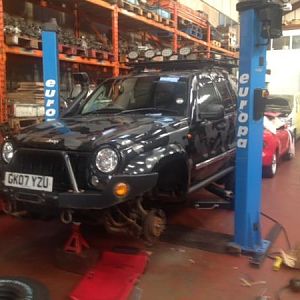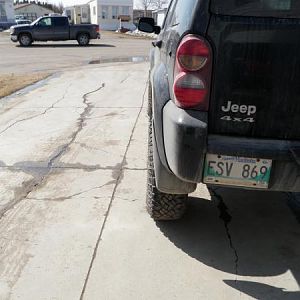I had posted pictures of my spark plugs in the past after changing them out. #2 plug had some rust on the threads. I replaced all of the plugs at that time. I pulled the #2 spark plug again to check it to see how it was looking. The spark plug was pretty difficult to get out. I let it soak over night in PB Blaster. Turned until it start to bind up, then thread it back in slightly, and continued this process until I eventually got it out.
I fear that the threads may have been messed up due to the rust or something (I am always VERY careful when threading anything in to make sure they don't bind up or cross thread). Any resistance and I stop and start over. Anyways, the new spark plug threaded in fine, but removing it was a chore. Either way it is out, and I want to know what to do next.
The threads in the head seem to be clean at first since you can start the spark plug without any issue, but it starts to bind up towards the end. The last few threads on the newer spark plug are messed up (pictures to follow). I have been reading around and seem to get the idea that you can 'chase' the threads in the head with a certain tool, or that you can 'tap' the threads, depending where you look.
I guess my main question is what size hole and what thread pattern do I use for the spark plug holes in a 3.7L Liberty? Has anybody used this method to save the threads in the hole?
Pictures as promised, kind of hard to tell, I know:
Thanks!
I fear that the threads may have been messed up due to the rust or something (I am always VERY careful when threading anything in to make sure they don't bind up or cross thread). Any resistance and I stop and start over. Anyways, the new spark plug threaded in fine, but removing it was a chore. Either way it is out, and I want to know what to do next.
The threads in the head seem to be clean at first since you can start the spark plug without any issue, but it starts to bind up towards the end. The last few threads on the newer spark plug are messed up (pictures to follow). I have been reading around and seem to get the idea that you can 'chase' the threads in the head with a certain tool, or that you can 'tap' the threads, depending where you look.
I guess my main question is what size hole and what thread pattern do I use for the spark plug holes in a 3.7L Liberty? Has anybody used this method to save the threads in the hole?
Pictures as promised, kind of hard to tell, I know:
You must be registered for see images attach
You must be registered for see images attach
Thanks!










